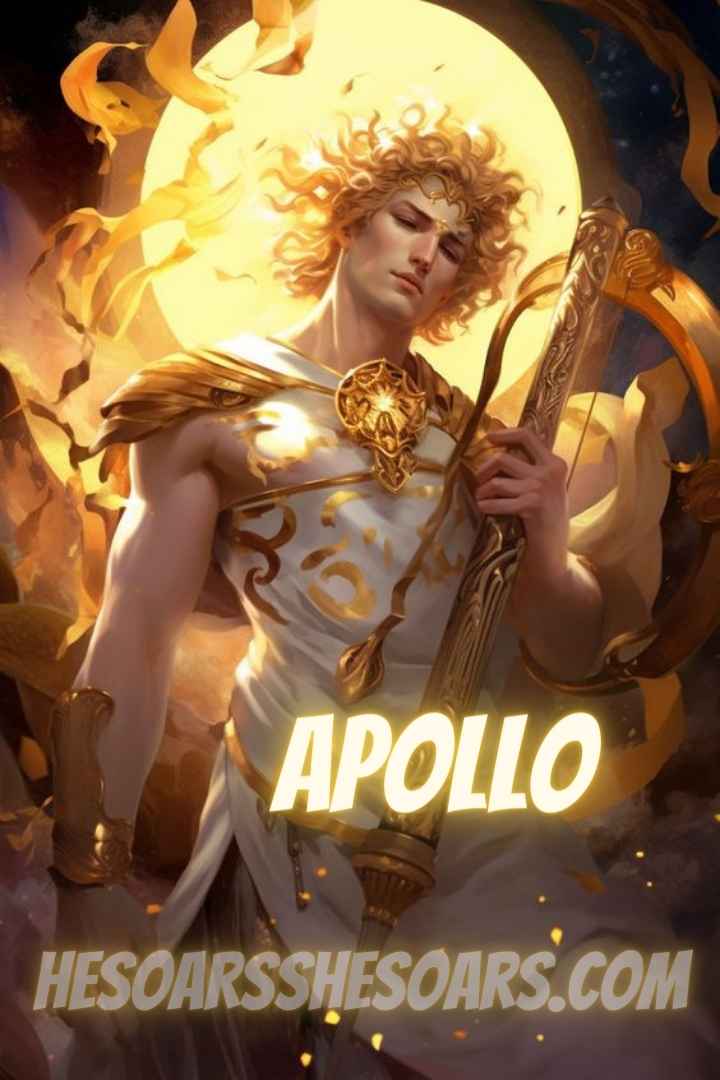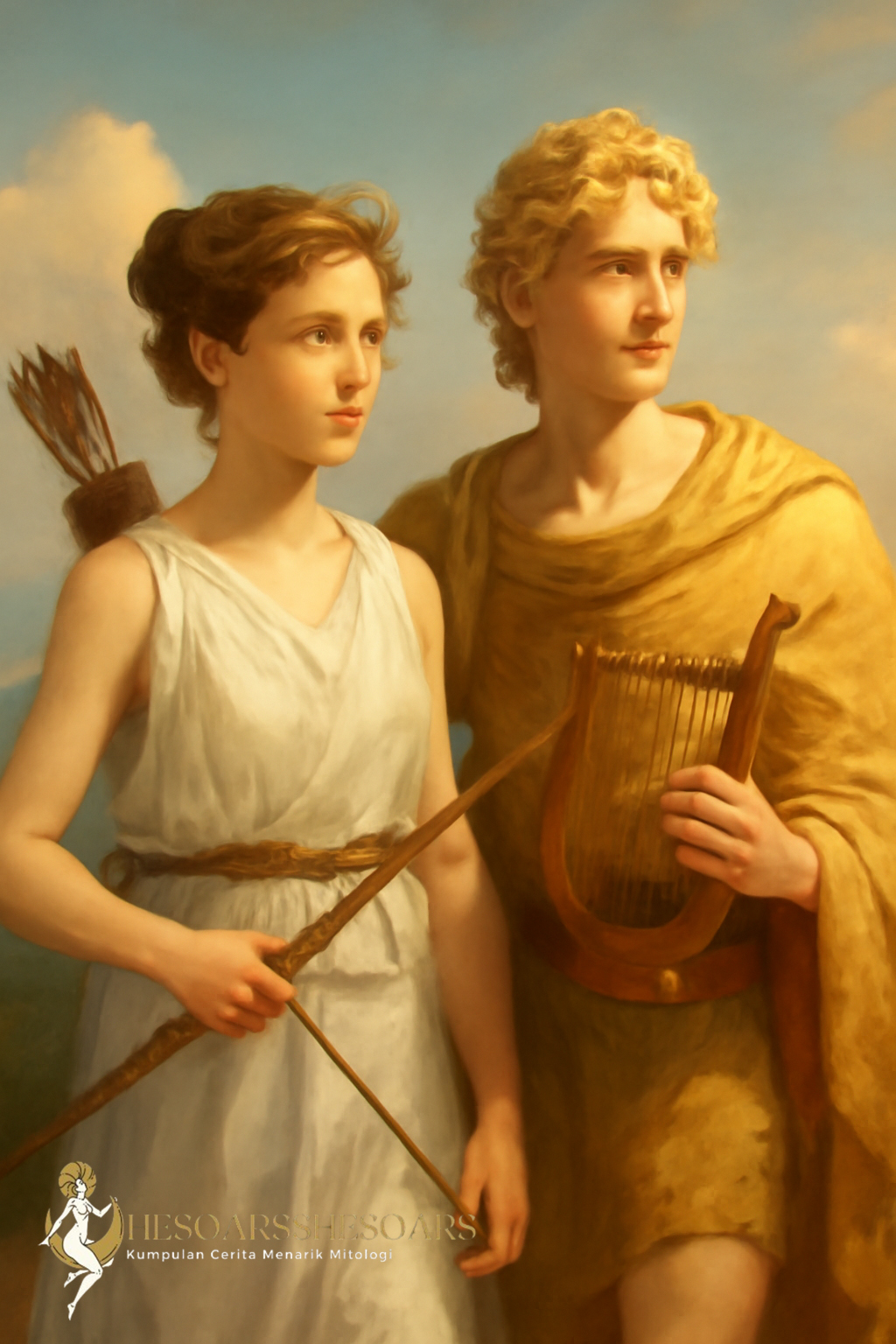Introduction
Apollo is one of the most complex and significant deities in ancient Greek and Roman religion and mythology. Associated with the sun, light, music, prophecy, healing, and poetry, Apollo has been a symbol of ideal beauty and harmony.
Origins and Birth
Apollo’s story begins with his birth on the island of Delos. His mother, Leto, was pursued by the jealous Hera, wife of Zeus, but found refuge on Delos to give birth to Apollo and Artemis. The moment Apollo was born, he was fed nectar and ambrosia, transforming him into a divine adult.
Attributes and Symbols
Apollo is often depicted as a handsome, beardless young man with a laurel wreath, a lyre, and a bow and arrow.But The laurel, a symbol of victory and honor, is associated with him due to his love for Daphne, a nymph turned into a laurel tree. The python, dolphin, raven, and swan are also sacred to Apollo.
Oracle of Delphi
One of Apollo’s major sites was the Oracle of Delphi, where the Pythia, the high priestess, delivered prophecies.But The oracle was consulted by individuals and city-states alike, seeking guidance on important matters. Apollo’s association with prophecy is deeply embedded in the lore of Delphi.
Apollo and Music
But Apollo is the god of music and is credited with the invention of the lyre. But Music played a vital role in Greek culture, and Apollo’s talents symbolized the harmony and order of the cosmos. His musical contests with other gods and mortals are well-documented in myths.
Apollo the Healer
while Associated with healing and medicine, this god olympian was considered a protector against diseases. He had the power to bring illness and cure it. Temples dedicated to Apollo were places of healing, and his son, Asclepius, became the god of medicine.
Apollo and the Arts
while this god is the patron of arts and poetry. He inspired poets and musicians, and the Muses, the goddesses of the arts, were his companions. His influence on the arts was profound, and he was often invoked for creative inspiration.
Romantic Pursuits
this god had many romantic pursuits, but most ended in tragedy. Daphne turned into a laurel tree to escape him;But Coronis was killed for unfaithfulness, and Cassandra, who rejected him, was cursed with prophecies that no one would believe.
Literature
But this god appears in numerous works of ancient literature, including Homer’s “Iliad” and “Odyssey.” His complexity is explored through various roles he plays, from a divine musician to a vengeful god. He represents the dichotomy of beauty and danger.
Apollo’s Legacy
The legacy of Apollo is vast. But He played a central role in ancient Greek religion and was adopted by the Romans. His influence persists in art, literature, and culture, symbolizing the pursuit of beauty, truth, and knowledge.
Apollo in Modern Culture
But Apollo’s influence transcends ancient mythology. He has been the subject of countless artworks, operas, and literary works throughout the centuries. The Apollo program, which landed the first humans on the Moon, was named after him, symbolizing pursuit of knowledge.
Conclusion
But Apollo is a multifaceted deity with a rich and diverse mythology. His stories have been a source of inspiration, exploration, and reflection on human nature and the divine. From the sunlit halls of Mount Olympus to the modern canvas of art and science, Apollo continues to illuminate the complexities and wonders of existence.



